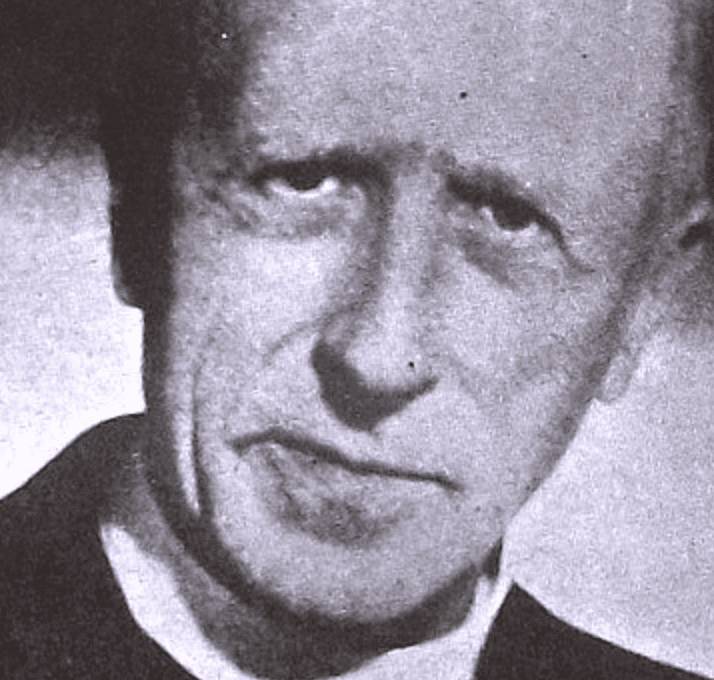Today we will talk about the biography of a French geologist, paleontologist, philosopher and theologian with a religious vocation, whose works have been translated into several languages: Pierre Teilhard de Chardin.
His belief that man is constantly evolving mentally and socially towards a final spiritual unity has made him known.
- His interest in science appeared in his youth and.
- As a result.
- He sought to unify scientific significance with his work in the Jesuit order of which he was a member.
- Pierre Teilhard de Chardin argued that the human epic is nothing more than a “road to the cross”.
This kind of thinking triggered an ultimatum of the Catholic Church in 1962, what has never been questioned is its spiritual dedication and, even today, is considered one of the most important figures in the scientific world.
Pierre Teilhard de Chardin was born on 1 May 1881 into an aristocratic family in Auvergne. His childhood took place in the countryside, in the castle of Sarcenat, owned by his parents. It was the fourth of eleven siblings and grew up in a purely traditional atmosphere. environment and rooted in Catholicism.
After finishing high school at the Jesuit college of Mongrés in Lyon, he began his novitiate in the Jesuit company in Aix-en-Provence, then continued his studies at Angleterre, studied theology in Jersey and in 1905 was ordained a priest in Hastings. .
In parallel with his religious vocation, Pierre Teilhard de Chardin developed a passion for science during his three-year stay in Egypt, where he taught physics and chemistry, and after his priestly ordination became interested in paleontology and geology.
He participated in excavations and, back in France in 1912, entered the paleontology laboratory of the Natural History Museum in Paris, where he began a brilliant career as a researcher in human paleontology, and worked on excavations of the caves of Altamira, Spain.
In 1914, the war mobilized this young priest, although his religious vocation led him to serve as a nurse, not a soldier, in a skirmish regiment in Morocco, flatly refusing to work as a priest during the war.
Chardin ranked this extremely dramatic scenario presented by the experience of a war as “his baptism in the real world. “
The war put an end to his foundations of philosophical thought and this was reflected in his early works: the Genesis of Thought and the writings of war. His great bravery during the war earned him the Military Medal of the Legion of Honour.
After the war, Pierre Teilhard de Chardin stayed in Paris, teaching at the Catholic Institute. In 1923, he completed the first of his paleontology missions in China, where he joined the team that discovered the skull of the Beijing Man.
During the 1930s, he made several more trips: to the Gobi Desert, Java, Somalia, Kashmir, Mongolia and Burma. World War II broke out while in Beijing, where he spent nearly six years in semi-captivity.
It was during his stay in China that Pierre Teilhard de Chardin wrote two of his most mystical texts: Mass in the World and The Spiritual Energy of Suffering.
In 1937, Chardin received the Mendel Medal in Philadelphia in recognition of his scientific research in human paleontology. A year later, he founded the Beijing Institute of Geobiology and published several articles in his prestigious scientific journal.
Starting in 1951, Chardin moved to New York and, even there, he still participated in several scientific expeditions to South Africa, in which he began to trace the African origin of man, now accepted by science. He died in New York on April 10, 1955, at the age of 74.
Pierre Teilhard de Chardin was an internationally recognized figure by his fellow scientists, his discoveries and hypotheses about the origin and destiny of the human being led him, throughout his life, to a constant conflict with the Roman religious authorities.
His theories about man’s place in the universe have become teachings transmitted throughout the planet, significantly disturbed the heart of the Catholic Church and, as a result, none of his unsocent works were published during his lifetime.
All were published on a supersum basis by his personal assistant, starting in 1964, when the Pierre Teilhard de Chardin Foundation was founded, becoming the legacy of this extraordinary scientist.

